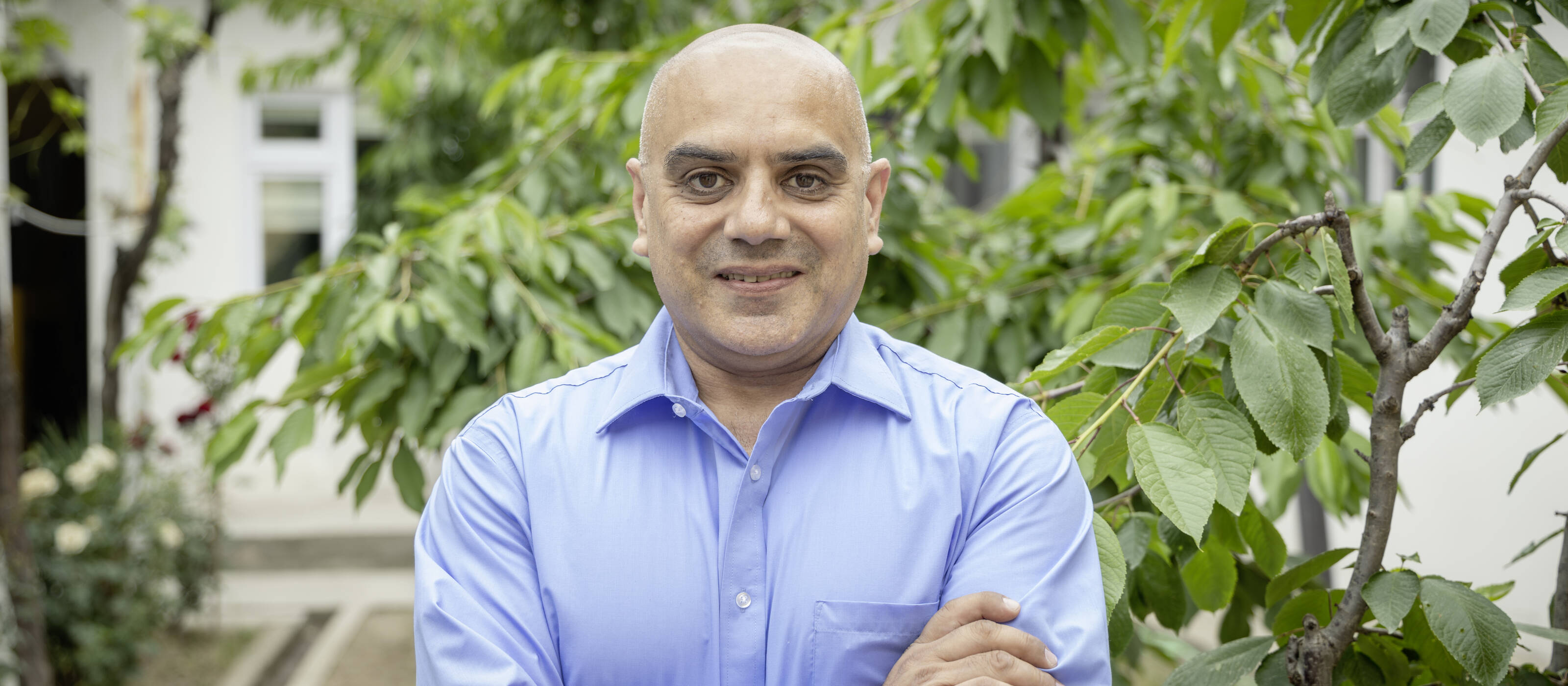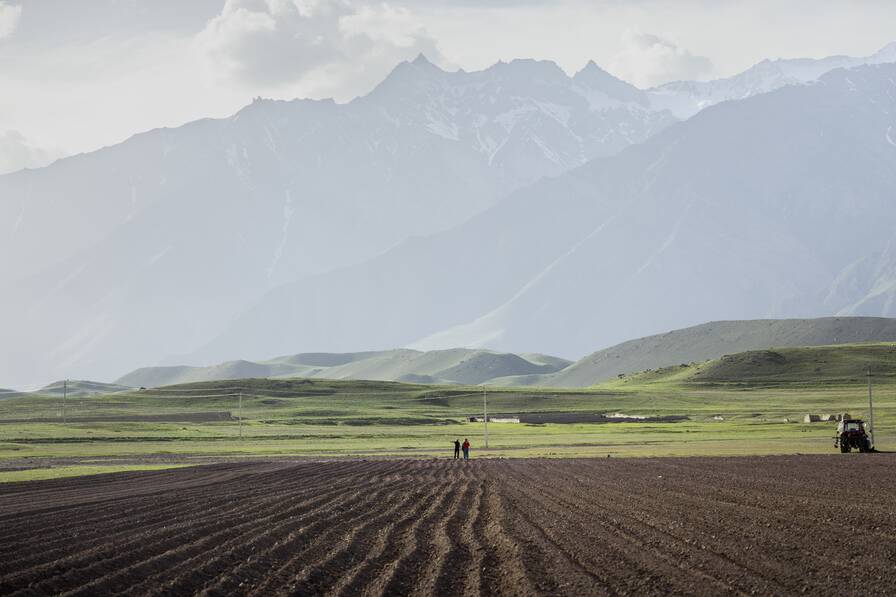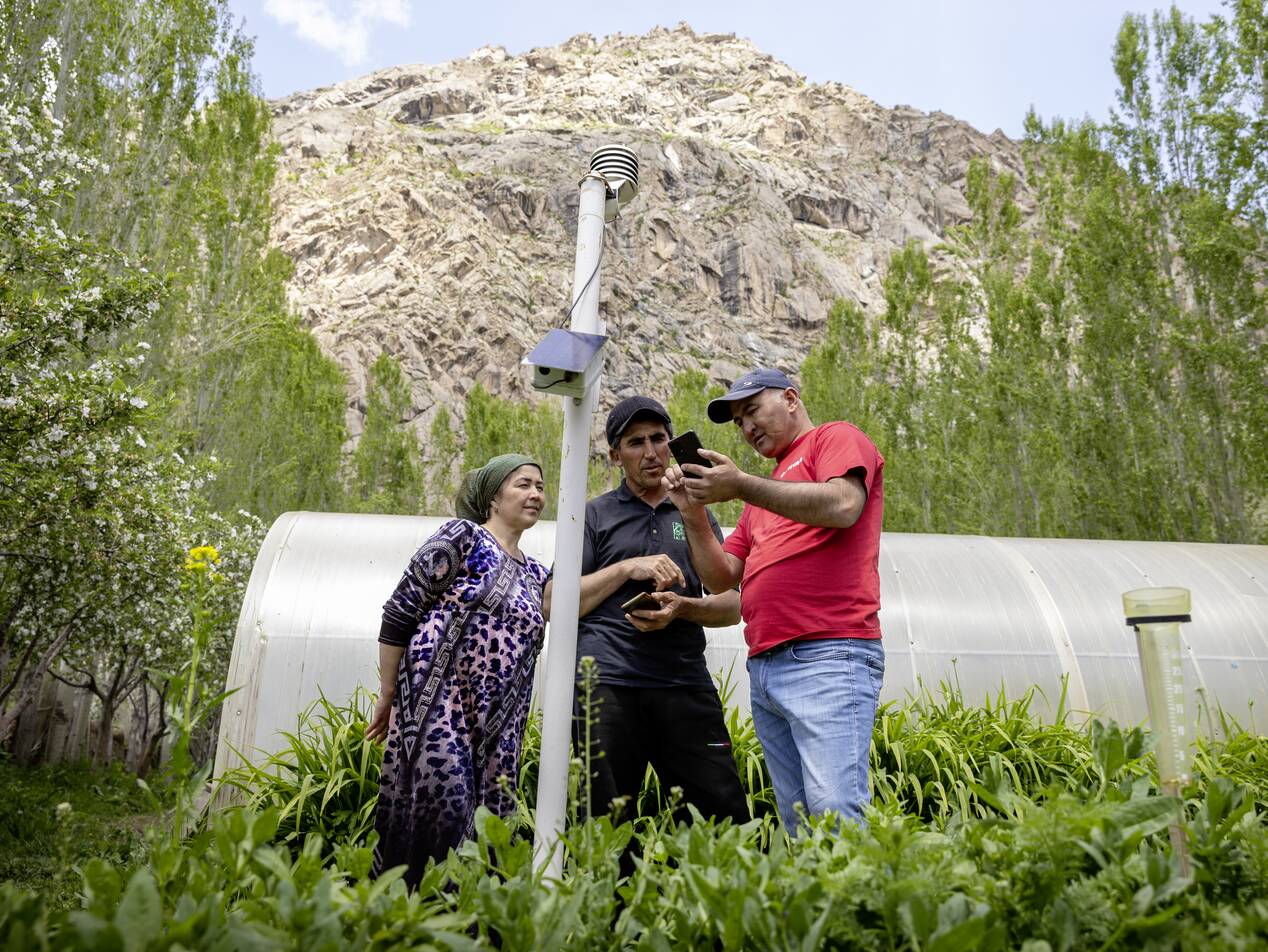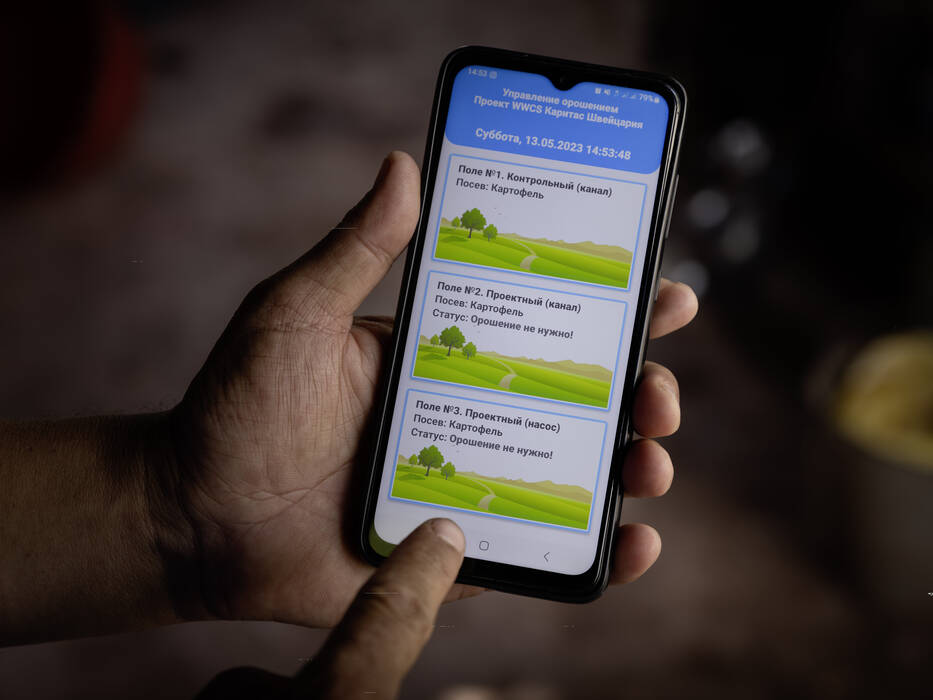

Four questions put to Shinan Kassam regarding COP28
Tajikistan is suffering from the impact of climate change and is reliant on the commitment of the international community. That is why a Caritas delegation from Tajikistan is taking part in COP28 to stand up for climate justice.
Tajikistan is the poorest country in Central Asia and is severely affected by climate change. Such countries are dependent on the commitment of the international community to act on climate change – they are not the ones that caused it. That is why Shinan Kassam, the director of the regional office of Caritas Switzerland in Tajikistan, is participating in COP28 this year.
It is a climate conference in which the international community works together on solutions to tackle the climate crisis. Shinan Kassam’s team is presenting two of the projects in Tajikistan at COP28. In an interview, Shinan Kassam tells us why the projects are successful, and that at COP28, he is seeking effective partnerships for developing them further.
Shinan Kassam, why are you taking part in COP28?
COP28 offers a unique platform for sharing knowledge about innovative development methods such as we use in Tajikistan. We can learn from similar initiatives in Central Asia and around the world. We attach great importance to the development of context-related approaches to climate change adaptation.
After a pilot phase, some of our methods in Tajikistan are now ready to be introduced at national and regional level. Through strategic partnerships with relevant government ministries and committees and thanks to joint funding from the Swiss Agency for Development and Cooperation SDC, the European Union EU and Caritas Switzerland, these approaches have been successfully advanced in recent years.
The interaction at COP28 comes at a very opportune time.

What objectives is Caritas Switzerland pursuing with the two Side Events at COP28?
We are interested in experiences, successes and challenges encountered by others when developing approaches to climate change adaptation. We want to exchange ideas on this with other organisations and initiatives. We are also seeking partnerships with like-minded international and regional institutions and organisations. We want to exploit synergies in order to promote investment in the area of ‘adaptation to climate change in Central Asia’, because targeted and affordable services require continuous innovation and investment.
In order to achieve these objectives, we are presenting two important projects of Caritas Switzerland in Tajikistan at our two events. Both work with modern Weather-Water-Climate Services (WWCS). With one project, we support the farmers in moving from a reaction to weather, water and climate conditions to the management of these conditions. The second project focuses on using WWCS for sustainable pasture management, which counteracts the widespread degradation of the soil resulting from overgrazing.


To what extent can the climate projects implemented by Caritas Switzerland in Tajikistan serve as an example for other countries?
A special feature of our projects in Tajikistan is that we involve the users of the WWCS in the collection of weather data. So far, these have mainly been small farmers who set up low-cost open-source weather stations in their garden or their fields. They also actively contribute their own observations and feedback on the WWCS to the system, in the sense of a so-called ‘citizen science’ approach. In this way, we achieve a density of weather observations unprecedented for Tajikistan, which enables the Tajik weather service to make more accurate forecasts. In addition, a range of various other necessary WWCS is being developed in cooperation with government partners.
This approach is particularly of interest to countries which have insufficient public resources for the maintenance of expensive, automated weather stations – as is the case in Tajikistan.

And finally: What are you hoping for from COP28?
Drawing attention to the challenges and advances when tackling climate change in Central Asia is very important to us. We want to invite experts in development cooperation to develop the innovative WWCS jointly with us. To this end, we present the advantages of our context-related and low-cost services in Tajikistan to the community. Thanks to practice-oriented networking and cooperation with people from science, politics and society, we are making good progress. However, despite this, or precisely because of it, it is important to continue to invest in developments in this field.
Further information
Header image: Shinan Kassam, Director of the Caritas Switzerland regional office in Tajikistan © Reto Albertalli